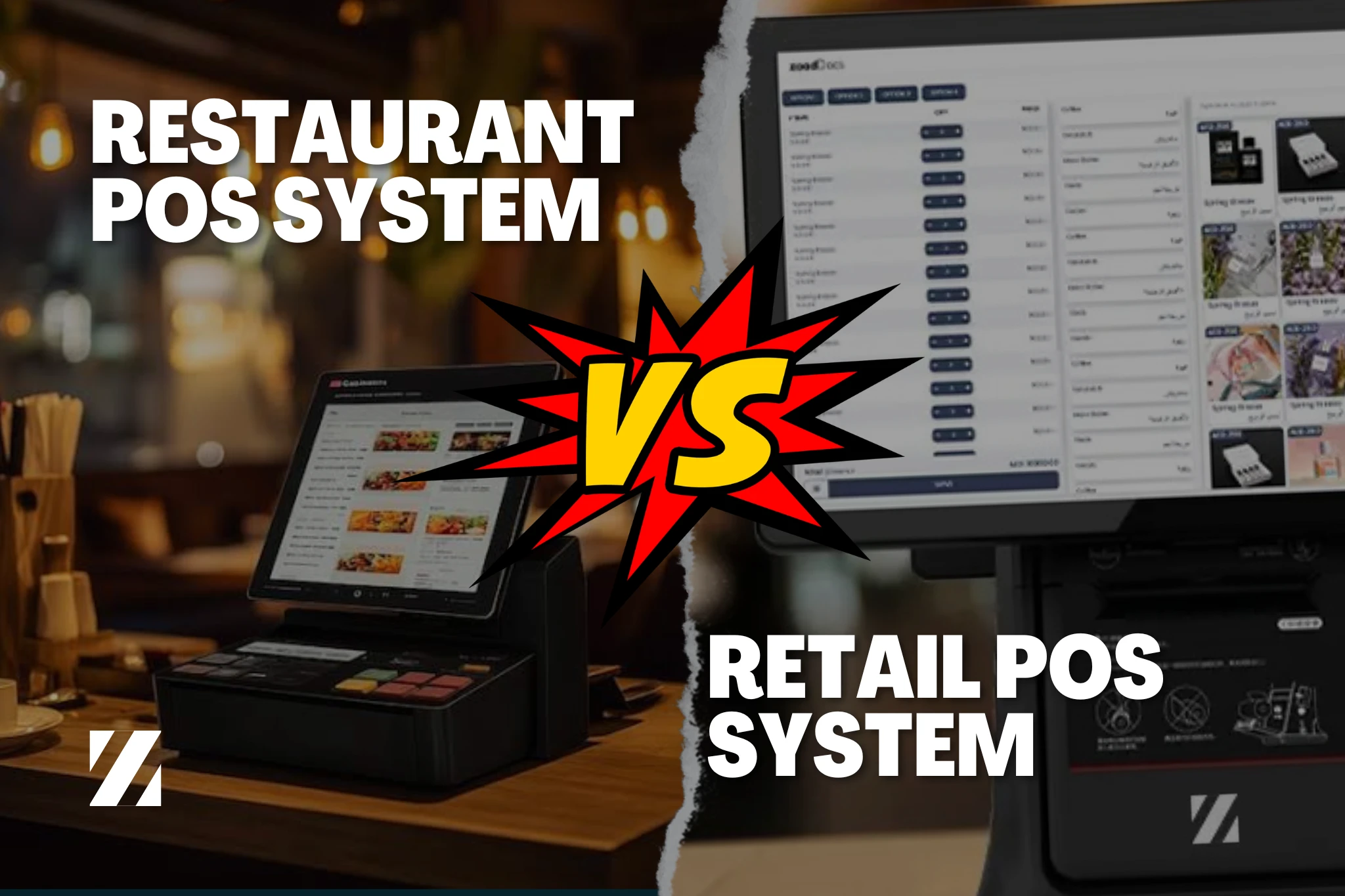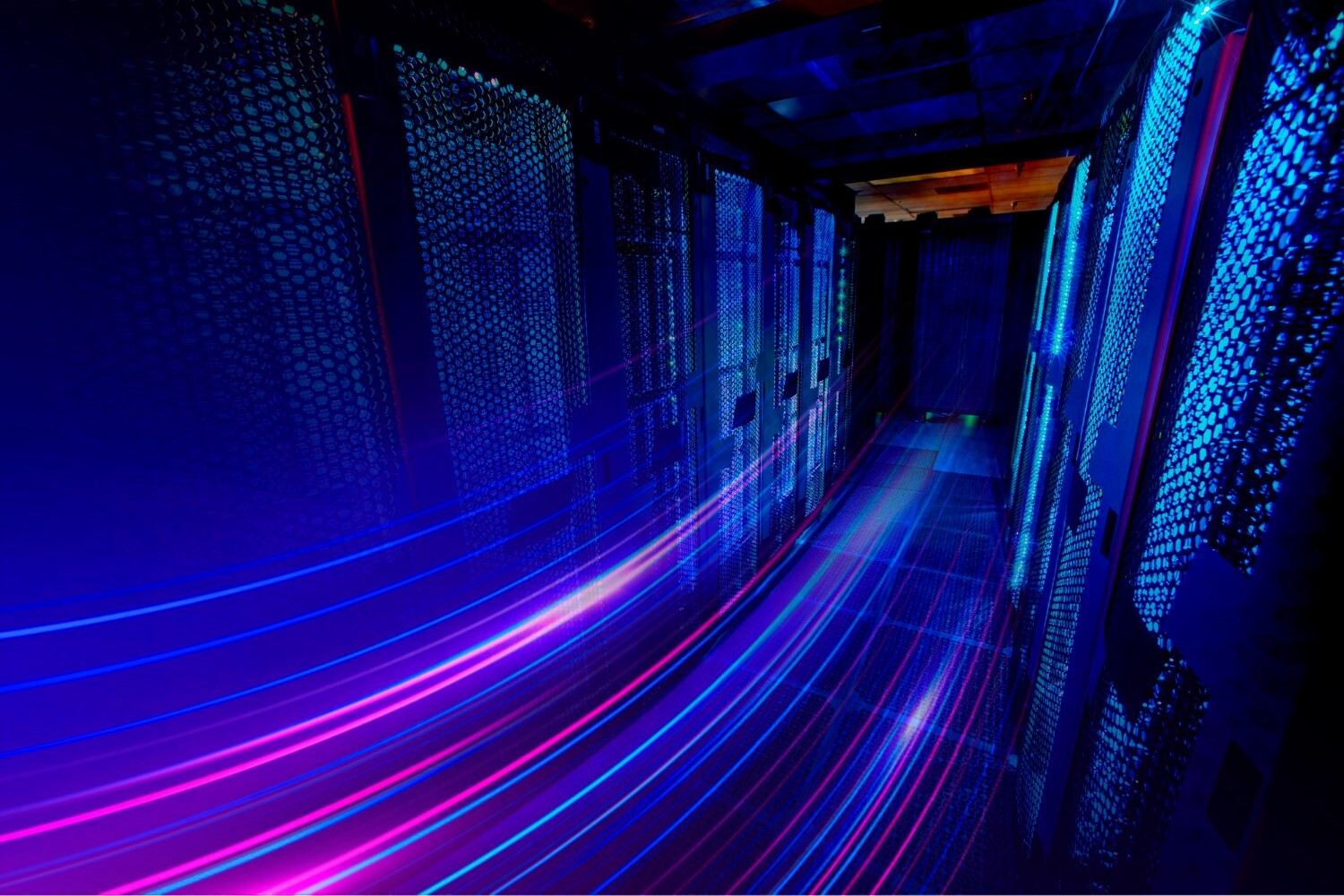POS systems are essential to the future success of the businesses. Your POS system will affect how you communicate with your clients in retail or restaurant ventures. However, before selecting one, you should understand the major differentiation between the Restaurant POS system vs retail POS.
Restaurant POS systems are made to simplify order management, table reservations, and menu customization. Retail POS systems concentrate on product tracking, checkouts, and barcode scanning. You need a strong POS System in UAE to make your way into the triumph through the tough business sector of the Middle East.
POS can also make a huge variation in how you manage your customers. Discover how to select the perfect restaurant and retail POS software for your business.
H2: What is a POS System?
A POS system is a hardware and software combination that gives an extra hand for the upliftment of your business. It is essential for overall management like recording sales information, processing payments, and providing receipts.
A POS system can do wonders to your retail or restaurant establishment by simplifying operations and increasing accuracy and speed. Its improved efficiency, which lowers errors and expedites checkout times, is one of its main benefits. It also provides essential capabilities for business expansion, such as real-time inventory tracking, sales reporting, and client management.
Selecting the ideal POS for small retail enterprises may streamline processes and raise customer satisfaction in tiny companies. However, when comparing retail vs. restaurant needs, it’s clear that each sector requires tailored functionalities. A retail POS focuses on inventory and quick sales, while a restaurant POS effectively manages orders and dining experiences.
H2: Restaurant POS System: Key Features
The hotel business is the most trending and successful business of today. Good POS will take your food ventures to the next level. Restaurant POS systems are designed to meet the unique requirements of food and related businesses. The main separating criteria between the Restaurant POS system vs retail POS is that it goes beyond just processing payments but helping restaurants manage orders, tracking, and simplify daily operations.
A restaurant POS system ensures smooth service and better customer satisfaction. It also makes precise table management, menu customization, and timely reporting to make everything more efficient. Following are the key features of a restaurant POS system that make it an essential tool for today’s dining establishments.
Table Management
Table management is one of the most important features of a restaurant POS system that aids in organizing operations. It has reservation systems, table tracking, and status indicators to guarantee effective service. For example, it gives employees visibility into which tables are accessible, reserved, or occupied. Wait times are decreased, and service flow is enhanced. By using table management, restaurants can efficiently manage bookings and maximize seating configurations for a better dining experience.
Order Customization
Customization of orders improves consumer satisfaction and versatility. It enables employees to add or remove items from recipes to client preferences. Managing multiple meals in the right order and dividing the bill among diners is also made simple by the system. These features enable restaurants to manage complicated orders easily, giving clients a satisfying and customized eating experience.
Kitchen Display System (KDS) Integration
Through Kitchen Display System (KDS) integration orders are sent straight to the kitchen display rather than using handwritten notes or printed tickets. By prioritizing orders, the technology facilitates more efficient work for kitchen employees. This reduces delays and mistakes, resulting in faster service.
Menu Management
The menu management feature allows you to add daily specials, create combos, or introduce seasonal dishes without hassle. The kitchen and customer-facing platforms, such as digital menus or online ordering systems, are immediately updated to reflect changes. This adaptability enables eateries to remain vibrant and satisfy customer tastes. For instance, a meal can be instantly listed as sold out if it is momentarily unavailable. The total eating experience is improved, and efficiency is increased through menu management.
Tip Management
Tip management is a key feature of a restaurant POS system that simplifies handling gratuities and server commissions. It allows customers to easily add tips during payment, whether by cash, card, or digital wallet. The system automatically calculates and records tips which is an added benefit of a Restaurant POS system vs a retail POS.
Retail POS System: Key Features
The demands of retail organizations are specifically addressed by the retail POS system. It optimizes daily operations by managing sales, processing payments, and tracking real-time holdings. Retail point of sale (POS) systems also have barcode scanning, customer loyalty programs, and complete sales reporting.
Retail POS Software is necessary to increase customer happiness regardless of the size of your business. Let’s review some major components of a retail point of sale system.
Barcode Scanning and Label Printing
Label printing and barcode scanning are crucial for a Retail vs. Restaurant system. By minimizing errors and rapidly identifying products, they facilitate quick checkout procedures. Label printing makes inventory management more effective by guaranteeing precise pricing and product tracking. Employees can easily update barcodes and print labels for fresh stock while ensuring smooth operations.
Inventory Management
Inventory management always keeps your stock level stable. Features like low-stock alerts help you reorder on time and to predict future requirements based on sales trends. This ensures better stock control, reduces waste, and improves profitability. For example, knowing when an item is running low allows you to restock before demand peaks.
Customer Loyalty Programs
Implementing customer loyalty programs that increase customer loyalty is made simple with a retail point-of-sale system. The system allows you to track client points, generate incentives, and give discounts. Customers can accrue points for each transaction and use them to purchase prizes later. Sales and customer satisfaction rise due to improved customer connections and increased likelihood of referrals.
Multi-store Management
Retail businesses can benefit from multi-store management. Due to its integrated management, you can monitor sales, inventory, and personnel performance across all locations. For instance, an excellent POS System in UAE allows you to control pricing, move inventory between outlets, and track sales data throughout the Middle East and across the globe. No matter how many stores you oversee, this guarantees uniformity and effectiveness in operations.
Employee Sales Tracking
Employee performance and sales contributions can be tracked using employee sales tracking. Every transaction an employee does is monitored by the system, which offers information on productivity and efficiency. You can pinpoint high performers or give those who require more guidance—a stronger driven workforce profits from this feature, which increases accountability and aids in performance.
Conclusion
In conclusion, the key differences between a Restaurant system vs retail POS lie in their specialized functionalities. Retail POS systems prioritize control of stocks, barcode scanning, and multi-store administration. In contrast, restaurant POS systems prioritize table management, order customization, and kitchen integration. Purchasing the appropriate technology increases total efficiency, guarantees seamless operations, and improves consumer satisfaction.
Zaad Platforms provides reliable Retail POS Software to satisfy your business needs if you’re searching for customized solutions. Discover IT Solutions in UAE with Zaad Platforms. Let our knowledge help you choose the ideal point-of-sale system for your sector.



